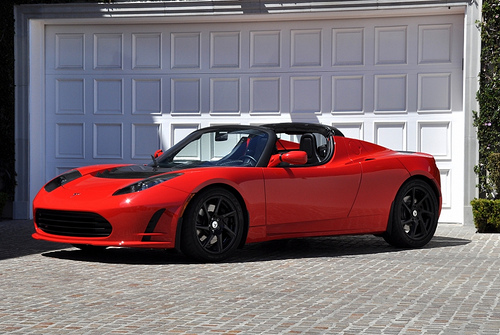Electric cars refuel for a comeback

The history of the electric car in America is a fascinating one, wrought with hope and broken promises, corporate greed and exaggerated promises. More than 100 years ago, when cars were still a new contraption in general, there were as many or more electric cars as there were petroleum-powered autos. Electric cars were quiet and could be charged at a residence, while gas-powered cars needed to be cranked and produced exhaust.
So why did the gas-powered car win out over the electric version? Oil got cheap and mass-producers of cars chose it as the fuel of choice. The internal combustion engine won the fight and the rest, as they say, is history.
Electric cars didn't have much of a second chance until the mid to late 1990s. But even then it didn't catch on. There's a great documentary called "Who Killed the Electric Car" that delves into fate of electric cars in the late 1990s and looks at why they missed out on their second chance then.
But electric cars have been creeping their way back onto American roads in the last few years. One of the most visible and successful electric car creators has been Tesla Motors, makers of the Tesla Roadster, a $60,000 luxury electric roadster sold out of California. I was on a crew that got to film an early version of that roadster cursing the streets outside the factory, and their cars are as awesome and quiet as you want them to be. But at $60,000 for a starting price, it's way out of the question for everyone but the really wealthy. And a roadster is more of a play car, not something that will entice people who live in a city, or people with families, or people on a budget. So… most of us.
This year, though, two big auto-makers are sending lightning bolts of hope into new electric car designs: General Motors and Nissan.
GM is beginning production of a new car they're calling the Cadillac ELR, which will use the same technology as their Chevy Volt. An electric cadillac, though, is still going after the luxury market.
Nissan is bringing out an even less expensive version of their electric car, the Leaf. They are even cutting 18 percent off of the current cost of the car, making it retail starting at $28,800. While that's not cheap, you also get various state and federal tax credits that will bring it down closer to $20,000, and then, of course, you won't have to drop $100 in gas every week for the next ten years, which is, well, a lot of money.
So now we've got the roadster, the luxury, and the practical cars handled. I see a lot of electric taxi cabs cruising around San Francisco as well- not to mention the buses and tourist vehicles. So, it's happening. It's creeping in.
But I think what it will really take is an electric SUV or something similar that a family can buy for less than a current version, that keeps their children safe, and that is ultra-compelling to buy for reasons other than being electric. Because the interesting fact I see about cars is that people want a good vehicle, regardless of how it's powered. The fuel is a secondary factor, an argument that can push someone one way or the other.
Hopefully this resurgence is pushing the car industry closer to the tipping point and all of us closer to turning the ignition on our own electric car.
Image courtesy of NRMA New Cars

3 comments